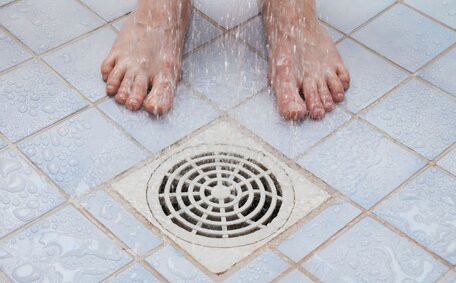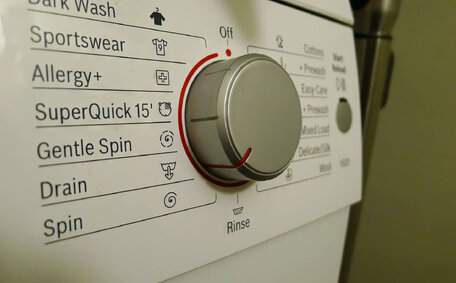
Baking Soda & Vinegar for Cleaning
Using baking soda & vinegar separately for cleaning is very effective; but mixing them dilutes their cleaning power. Learn how to use them properly.
Read MoreBaking soda and vinegar have become a widely-used cleaning duo in many homes. The fizzy reaction when you mix them together may make you curious to find out if you’re wielding a powerful cleaning solution. Science tells us that the individual cleaning strengths of baking soda and vinegar are diminished when they’re mixed together.
At Lilyfield Plumbing, we’re eager to delve into the specifics.
When you mix baking soda with vinegar, a reaction occurs that produces carbon dioxide and sodium acetate, while also neutralising the pH.
In fact, using baking soda and vinegar separately can effectively tackle different types of grime and stains in your home.
When baking soda (chemical name sodium bicarbonate) and vinegar (acetic acid) are combined, a chemical reaction occurs producing carbon dioxide gas, water, and sodium acetate.
The high pH level of baking soda assists in multiple cleaning tasks, and the acidity of vinegar is great for tackling certain problems. Vinegar is an acid with a low pH of about 2-3. Even if vinegar and baking soda are used together correctly, the acid-base reaction limits their individual cleaning potencies.
The vinegar’s hydrogen ions react with baking soda’s bicarbonate ions to form carbonic acid, which rapidly turns into carbon dioxide and water.
Post-reaction, the mix is a neutral liquid consisting of sodium acetate, water, and carbon dioxide. This results in a solution where they don’t retain much of the original base and acid’s cleaning power.
While vinegar baking soda react, the carbon dioxide produced is the fizzing you observed. Contrary to popular belief, the resulting mixture is no more effective than plain water at removing grime.
That said, recognising how to use baking soda and vinegar separately can harness their individual cleaning properties effectively. Create a baking soda paste to apply on surfaces, removing grease and stains, whereas vinegar, as an agent combatting bacteria and mineral deposits, cleans a variety of surfaces effectively. Using vinegar with its strong acidic properties can be beneficial for eliminating bacteria and hard water deposits.
Baking soda mixed with water alone can be highly effective against challenging stains.
When baking soda and vinegar undergo their chemical reaction, the resulting mixture is essentially just salty water and carbon dioxide bubbles. The alkaline and acidic properties that give each ingredient their cleaning power essentially cancel each other out.
Without the active properties, the baking soda mixture doesn’t even clean any better than plain water. When it comes to tough cleaning challenges like scrubbing surfaces, tackling mould or mildew, or acting as a drain cleaner, the vinegar baking mixture simply comes up short.
Attempting to send the mixture down the drain to help loosen a sink clog would likely disappoint, while opting to use baking soda can help scour the grime and grease off the pipes. Wiping away residue with a damp cloth can harness less toil and often purify your kitchen sink more efficiently than the mixture, Yet vinegar can help to effectively disinfect and eliminate bacteria.
Despite its fizz, the mixture of baking soda and vinegar for cleaning is akin to salty water in efficacy. For the toughest chores, understanding how clean with baking soda following a pH-balanced approach permits potent utilisation of each component separately rather than combined.
While baking soda and vinegar neutralise each other when combined, they each have beneficial cleaning properties when used separately.
Distilled white vinegar’s acidity, similar to a solution of soda water, is effective at dissolving mineral deposits such as limescale. Vinegar’s acetic acid is excellent for breaking down tough grime and disinfecting surfaces.
Use your cleaning baking soda solutions or undiluted white vinegar to:
Baking soda, with its high pH around 8, is a mild alkali. It can scrub surfaces without scratching them and naturally deodorises. Take advantage of these properties by:
Maintain a shrewd cleaning approach; the true effectiveness of vinegar and baking soda emerges when each is used independently. Use baking soda for deodorising, followed by vinegar to cut through grime and disinfect surfaces. It’s insightful to apply vinegar and baking soda to their strengths on surfaces, effectively removing stubborn buildup without scratching.
Instead of mixing large amounts or using one cup baking soda, a half cup baking soda and water solution can rival the cleaning power of synthetic cleaners.
Two tablespoons of baking soda can yield effective cleaning results for everyday tasks. Using a single tablespoon of baking soda per application is cost-efficient and environmentally friendly.
Citric acid from lemons and limes cuts through grease and leaves a streak-free shine. Scrub pots and pans, squeeze onto cutting boards to disinfect, or include it in your dishwashing water.
As previously mentioned, vinegar is a versatile cleaner on its own. For effective disinfecting, add a quarter cup of vinegar to a spray bottle with warm water in equal parts before use.
Clean with vinegar, or consider hydrogen peroxide as another acid that sanitises as it works. Always use 3% hydrogen peroxide, a more cost-effective option than medical-grade variations. Hydrogen peroxide naturally decomposes into water and oxygen, leaving no residual chemicals.
While home remedies like baking soda and vinegar are useful, there are times when only a professional plumber will suffice. At Lilyfield Plumbing, we have over 25 years of expertise handling all types of plumbing challenges around your local Sydney area.
Don’t hesitate to contact us when you have:
For significant issues like burst pipes, our team at Lilyfield Plumbing recommends professional solutions; contact us any time at 1300 349 338 or at [email protected]. We service all makes and models with licenced, expert technicians to correctly assess issues and implement solutions.
To prevent property damage and faulty DIY repairs, it’s advisable to entrust complex plumbing issues to Lilyfield Plumbing. Enlisting professionals guarantees accurate diagnosis, secure repairs, and assured prompt assistance in emergencies.
Using baking soda & vinegar separately for cleaning is very effective; but mixing them dilutes their cleaning power. Learn how to use them properly.
Read MoreBlocked drains are usually caused by buildup of hair, grease, debris and more in your pipes. Fix the problem with professional drain unblocking services to get your drains flowing freely again. Contact us for affordable drain unblocking.
Read MoreWhen you suspect a gas leak or damaged gas line, contact a licensed gas fitter immediately to locate and repair it. A gas line repair involves sealing leaks, replacing corroded or damaged pipes and testing all connections for safety before restoring gas supply.
Read MoreLilyfield, 2040 NSW
We will call back as soon as possible.




